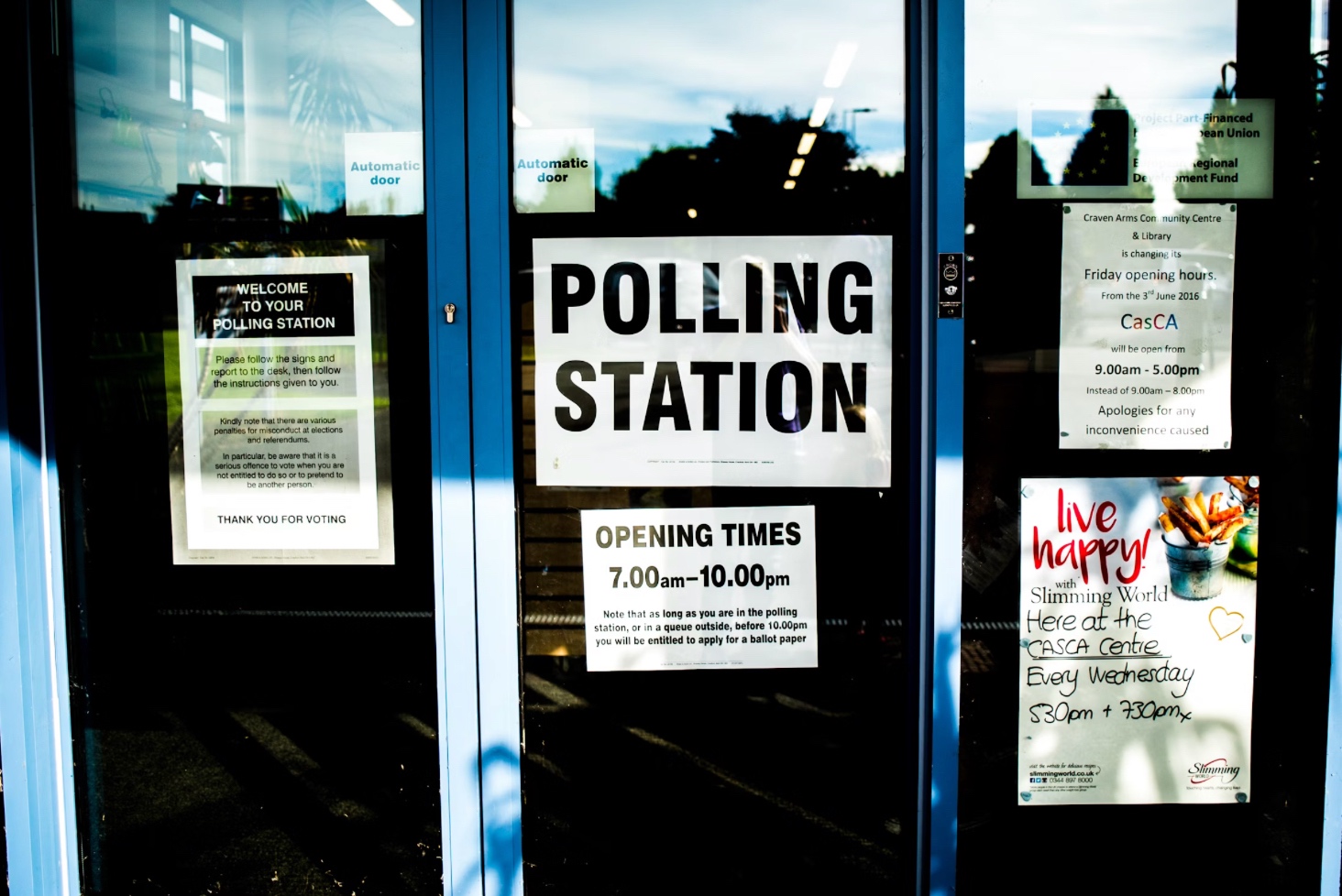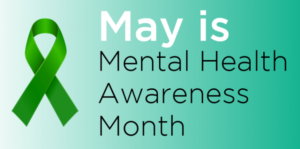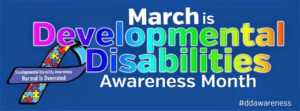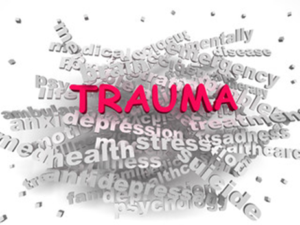Myths Vs. Facts About Mental Health Care

All emotions, feelings, dilemmas, and thoughts—positive or negative—are part of the human experience. It is natural to sometimes question why you may feel a certain way or struggle with navigating situations or emotions.
How we manage our feelings is important to our overall wellbeing, it is what defines our mental health and ultimately our happiness. But, sometimes common mental health myths keep us stuck. Perceptions of who needs therapy, how therapy works, and access to services can keep people from seeking guidance when they need it.
At CW Psychological Services, our doors are open to anyone willing to share. We regularly work with people from all walks of life to guide them as they navigate this world. But, all too often we hear many reasons why “therapy isn’t for me.” This newsletter is focused on changing that as we explore the myths and facts of mental health care.
You can read it here.
Want to receive our monthly newsletters? Subscribe here.
Helping Children with Autism Build Social Skills

People on the autism spectrum face several challenges, especially when it comes to social interactions. They may struggle with verbal and nonverbal communication, understanding social cues, empathy, and/or reciprocal social interactions. These challenges can make it difficult for those on the spectrum to establish meaningful, lasting relationships.
At CW Psychological Services in King of Prussia, Pennsylvania, we have providers skilled in helping children and families navigate life on the spectrum. We understand that trying to get your child with autism to interact with others successfully can be frustrating, but there are a variety of techniques that can help them develop social skills over time. In this newsletter we explore some of those techniques.
You can read it here.
Want to receive our monthly newsletters? Subscribe here.
How Can You Heal Attachment Trauma in Children?

The bond that is formed between a child and their caregiver in the first three years of life is crucial to their development and mental wellness in the years that follow. When those years are traumatic and healthy bonds are not formed, the child may suffer long-term.
Attachment trauma, otherwise referred to as attachment injury or disrupted attachment, can have debilitating and challenging effects on a child and caregiver if left untreated. Knowing how to address such trauma can be difficult, but new models like Multi-Modal Attachment Therapy can help.
You can read it here.
Want to receive our monthly newsletters? Subscribe here.
7 Ways to Boost Self-Esteem

February is the month of love, making it the perfect time to focus on the most important love—the love for yourself. The way you feel about yourself impacts everything in your life. It impacts how you present yourself, receive information, tackle tasks, and form relationships. Think of it as the trunk of a tree, the foundation, and everything else is the branches. If the trunk isn’t healthy, neither are the branches.
We aren’t just talking about self-love, but self-esteem and self-compassion. It ebbs and flows as we travel through life. At times we may have low self-esteem and lack compassion for ourselves, we may be mad at how we handled something or have regrets, while other times we may feel great. You may wonder what you can do if you are struggling with self-esteem. In this newsletter we discuss some things you can do to feel more confident and secure in yourself.
You can read it here.
Want to receive our monthly newsletters? Subscribe here.
Consistency is Key in Therapy

Taking the initiative to attend therapy is a great first step in supporting your mental health and overall well-being, but consistency is key. Lasting change doesn’t happen overnight; it’s a process that takes time and practice to master.
It can be tempting to visit only with your therapist or counseling provider when troubles arise, canceling or putting off appointments when things are going well. But just because things are going well in a moment doesn’t mean therapy should be put on the back burner. Working with a counselor or therapist in times of stability, clarity, and calm can allow for more progress and less distress in the long term.
At CW Psychological Services in King of Prussia, Pennsylvania we work with clients to set a consistent therapy schedule that works for them. We understand that everyone has their own needs and desires when it comes to therapy and we support you in the process.
Just as exercising occasionally won’t deliver the same results as a consistent schedule, neither will therapy. In this newsletter we discuss reasons why maintaining a regular therapy schedule is important.
You can read it here.
Want to receive our monthly newsletters? Subscribe here.
9 Tips for Coping with Grief During the Holidays

Holiday time—and all it entails—can be challenging for those grieving. After all, it is the time of the year when emphasis is put on embracing and sharing with loved ones, creating a strong reminder of what is missing.
The intense sorrow that often emerges this time of the year can cause people to turn to unhealthy coping mechanisms, avoid social gatherings, or dip into a deep depression. All those things that are meant to create joy — decorations, holiday music, and parties — can be painful reminders of loss.
At CW Psychological Services in King of Prussia, Pennsylvania we regularly work with clients on coping with grief. Our counselors have compiled this list of tips to help you navigate your grief.
You might be wondering how you are supposed to get through this time without your loved one. You might feel stuck, lost, unable to find any peace. In this newsletter we discuss some strategies to help you through this challenging time.
You can read it here.
Want to receive our monthly newsletters? Subscribe here.
How to Cope with Election Stress
There is no doubt that this has been one of the most polarizing election cycles in recent history, and with that has come a wave of stress, and frankly pure exhaustion, among Americans. The day many of us have been awaiting is coming next week but not without high anxiety, concern, and even fear.
If you are one of many feeling the stress of the upcoming election and how that may unfold, what can you do to keep your sanity and find some calm in the chaos? This newsletter offers some tips for coping with election stress.
You can read it here.
Want to receive our monthly newsletters? Subscribe here.
Helping Children and Families Heal Attachment Wounds: Introducing M-MAT

Children who have experienced trauma, especially trauma related to a caregiver leaving them suddenly, can be faced with many related challenges throughout their lives. But, there is hope. New research and types of therapies are beginning to show some promise in helping these children and their families heal.
This type of trauma is known as an attachment wound, or disrupted or injured attachment. Some examples may include a child whose caregiver died, was incarcerated, or abandoned them at a young age. People who have experienced attachment injury may struggle with anxiety, and depression, and often push away the love and connection they need the most. Victims of this type of trauma can also be hurtful to themselves and others.
Traditional child mental health therapies have been minimally successful, if at all, in treating these types of attachment trauma. Professionals and parents have long struggled with addressing these wounds, but perhaps there is another way.
A new therapy model developed by Catherine Young, LMFT, may offer a treatment solution—M-MAT or Multi-Modal Attachment Therapy. The counselors and therapists at CW Psychological Services in King of Prussia, Pennsylvania, have agreed to try it and contribute to Young’s research on the effectiveness of the therapy. CW counselors are currently training with Young and her team and will begin offering M-MAT as a treatment to clients shortly. This newsletter looks at how M-MAT works.
You can read it here.
Want to receive our monthly newsletters? Subscribe here.
How Does Couples Therapy Work?

Relationships are hard, especially romantic ones. Every relationship has its challenges and areas for improvement. Often partners have the same disagreements multiple times and struggle with underlying issues that can be difficult to pinpoint and work through. That is where a couples therapist comes in.
Couples therapy, marriage counseling, or couples counseling, whichever you choose to call it, can benefit all couples at some point in their relationship. Often one or both partners feel nervous or uncertain about beginning the couple therapy process, unsure of what it may entail. At CW Psychological Services in King of Prussia, Pennsylvania, we want you to feel comfortable obtaining the care you need. This newsletter discusses common questions or concerns.
You can read it here.
Want to receive our monthly newsletters? Subscribe here.
How Can Family Therapy Help?
Family—whether by blood, marriage, adoption, or any close relationship that is part of the foundation of your life—plays a monumental role in your physical and mental health. That is why it is crucial to work through challenging situations impacting those family relationships and dynamics.
With so many personalities and belief systems at play, it can be difficult to know where to begin healing a family relationship. Unfortunately, not addressing issues of discontent can only compound problems. Family therapy can help.
At CW Psychological Services in King of Prussia, Pennsylvania, our staff is well-versed in many evidence-based practices in family therapy. We regularly work with clients to heal strained relationships, tackle stress/anger, improve communication, establish boundaries, face trauma and grief, and cope with chronic illness/substance use disorders and life transitions, among other things. In this newsletter we talk about how family therapy works and the benefits.
You can read it here.
Want to receive our monthly newsletters? Subscribe here.
How and Why to Break Out of Your Comfort Zone

No one likes to feel uncomfortable, even if only for a short while. Being comfortable is a good feeling and breaking out of one’s comfort zone can be scary. But, that doesn’t mean you shouldn’t try every once in a while.
Always staying in your comfort zone can hold you back from experiencing the fullness of life. It can keep you from achieving goals, discovering more about who you are, and finding joy and fulfillment. Have you ever considered riding a roller coaster, skydiving, or another extreme thrill experience and felt overwhelmingly nervous at the idea of doing such a thing? Did you push past those feelings and go for it anyway? How did you feel after? Exhilarated, confident, courageous, excited, joyful? Has that moment become a positive memory? We give tips on how to break out of your comfort zone in this newsletter.
You can read it here.
Want to receive our monthly newsletters? Subscribe here.
How Does PTSD Prolonged Exposure Therapy Work?
An Interview with Associate Therapist Ladia Adams
Trauma and Post-Traumatic Stress Disorder have a way of taking over your existence, ruling your every thought and action. PTSD can be a debilitating and extremely difficult condition to heal and recover from, which is why June has been coined National PTSD Awareness Month. As the therapy world learns more about trauma and its impact on our brains and bodies, a variety of effective treatments have come to light.
One of those treatments is Prolonged Exposure Therapy. CW Psychological Services Associate Therapist Ladia Adams has been learning how to practice this treatment and reduce PTSD symptoms for a variety of clients in Philadelphia, Pennsylvania, and the surrounding area. We asked Adams to share her experience in this newsletter.
You can read it here.
Want to receive our monthly newsletters? Subscribe here.
How to Become More Emotionally Self-Aware

Emotions are powerful influencers in our lives. They impact how we move through our days and interact with others. Emotional self-awareness is identifying and understanding our emotions and their impact on our thoughts and behaviors.
For example, a bad experience in the car on the way to work can easily and unintentionally spill over into other interactions we have that day. But, by identifying those emotions as they happen, we can work through them and prevent them from harming other experiences.
Being self-aware is at the heart of emotional intelligence. The more self-aware you are, the better your overall well-being. At CW Psychological Services in King of Prussia, Pennsylvania, our counselors and associate clinicians understand that it is not always easy to be aware of our emotions in the moment. This is why we have created this newsletter with some practices to help improve self-awareness.
You can read it here.
Want to receive our monthly newsletters? Subscribe here.
5 Ways Boredom is Good for You

Being bored doesn’t always feel like something to be celebrated. Often it makes the anxious more anxious and the depressed more depressed. It can feel like for a brief time you have no purpose, no destination. But, boredom can have many benefits to mental and physical health. The key is in the embrace.
April is National Stress Awareness Month and a great time to discuss how boredom can help to release some of the stress we are so frequently carrying around. As a society it seems like we are always on the move, always connected, always distracted, always running in 10 different directions. So when we get those rare and often brief moments of having nothing to do, it can cause us to scramble for what we should be doing with that fleeting time.
At CW Psychological Services in King of Prussia, Pennsylvania we work with clients on stress management, anxiety, depression, and improving overall mental wellness. Our goal is to give our clients the tools they need to live the best way possible. That is why we have put together this newsletter on ways to embrace boredom positively.
You can read it here.
Want to receive our monthly newsletters? Subscribe here.
How Seeing an Associate Clinician Can Help
Therapy can be a lot of things — scary, overwhelming, calming, eye-opening, healing, and expensive. What if there was a way to get the help you needed at a reduced cost?
At CW Psychological Services in King of Prussia, Pennsylvania, there is. We work closely with local universities to employ highly skilled, experienced clinicians who are on their way to becoming fully licensed.
We understand that receiving care from a not-yet-fully-licensed therapy professional for your mental health needs might make you a little nervous. But, there are several benefits to working with an associate clinician. Our latest newsletter discusses many of those benefits. You can read it here.
Want to receive our monthly newsletters? Subscribe here.
Recognizing ‘Time to Talk’ Day
It is not always easy to talk about what is going on internally. Often it can feel easier to put a “fake” smile on your face and pretend everything is ok. But that isn’t sustainable. The problem with keeping our struggles to ourselves is those feelings have to come out and they will in one way or another. The longer we try to ignore our feelings, hiding them from others, the worse it may be when they finally emerge.
That is why February 6 was named National Time to Talk to Day. It is a day to bring awareness to mental health and encourage people to open up about their experiences. It is a day for talking. Nearly 20% of Americans will experience a mental illness in their lifetime, but many people don’t share out of fear, embarrassment, and social stigma.
Read this newsletter for more information on ending stigma surrounding mental health and ways to encourage more sharing with family and friends.
Check out this newsletter for more.
Want to receive our monthly newsletters? Subscribe here.
How to Decompress After the Holidays
You made it. You survived. You are on the other side of family/friend holiday gatherings. But, what do you do now? All that time with family and friends, especially if you struggle with trauma/attachment difficulties, can take a lot out of you.
On the surface, those gatherings are meant to be full of joy and fun but for many, they are a time of significant emotional turmoil. You may have felt a whole range of emotions over the past couple of months. You could have felt deep, intense sadness and grief for people or experiences that are no longer, annoyed with things done or said, tension in awkward moments, anxiety over preparations, or overwhelmed at all the things. Alongside the negative feelings, you may have also felt peace, hope, happiness, or gratitude.
Navigating this time can be challenging. Read this newsletter for a list of ways to decompress after a, shall we say, “complicated” holiday season.
Check out this newsletter for more.
Want to receive our monthly newsletters? Subscribe here.
Why You Can’t Do It All: Holiday Stress & Self-Care

The holiday season is a lot. It is a lot of things to do, people to see and please, money spent, and strain on our time, energy, wellness, and internal peace. It is a lot crammed into just a few short weeks.
Whether we want to or not, many of us think we can do it all. And while that may be true when it comes to completing tasks, it can’t be true as a whole. Why? Because you can’t do all the things without causing yourself stress or letting go of self-care.
Your mental health is important, especially during the holidays. Read our latest newsletter for a few ways you can take care of yourself during the holidays and beyond.
Check out this newsletter for more.
Want to receive our monthly newsletters? Subscribe here.
What Not to Say to Someone Experiencing a Mental Health Problem

Depression. Anxiety. Dealing with any mental health problem can be really tough. Not just for the one suffering through it but also for loved ones trying to offer support.
To the sufferer, depression can feel like you are carrying a thousand bricks on your shoulders. Everything is difficult. Getting out of bed and going through your daily routine feels impossible. It can be debilitating. Anxiety can feel like your mind is racing and things could fall apart at any moment. You might find it hard to breathe, struggle with headaches or stomach issues, and desperately seek out a feeling of calm.
For the support system, it is difficult to know what to say and what to do. You probably feel lost and stuck. You want to help. You want to make it all go away. But how? If you have a loved one struggling with depression, anxiety, or any mental health issue, it can feel like you are constantly walking on eggshells. Read our latest newsletter for tips on what not to say.
Check out this newsletter for more.
Want to receive our monthly newsletters? Subscribe here.
Embracing Recovery: Tools for Sustaining Sobriety
Anyone who has traveled the road to recovery or been a passenger alongside someone they care for, knows that it is not easy. It’s likely one of the most challenging tasks they will ever face. Gaining and maintaining sobriety is a decision a person in recovery has to make each morning and throughout the day. It is something that takes constant work.
At CW Psychological Services in King of Prussia, Pennsylvania, we often work with clients in recovery to maintain lasting sobriety. Our counselors and therapists assist in strengthening and building the tools clients have gained in their journey. This newsletter offers some tips to help those in recovery sustain lasting sobriety.
Check out this newsletter for more.
Want to receive our monthly newsletters? Subscribe here.
College Prep & The Empty Nest

There are a lot of emotions that come with starting a new chapter in life—whether it be as a student going away to college or a caregiver who now has an empty nest. These chapters all come with a change in schedule, routine, and personal environment. As challenging, exhausting, bittersweet, tearful, joyful, and celebratory this time can be, it can all go a little smoother with some preparation.
At CW Psychological Services in King of Prussia, Pennsylvania, we frequently work with young adults as they transition to college and adulthood. We also work with caregivers and parents who are facing an empty nest. That is why our mental health professionals have put together these tools to help.
Check out this newsletter for more.
Want to receive our monthly newsletters? Subscribe here.
8 Truths About Parenting Teens

Your role as a parent, or caregiver, changes as a child grows into their teenage and later adult lives. Hormone changes, emotional challenges, and the desire for independence can complicate your relationship with your child, leaving you feeling frustrated. The summer months can be particularly challenging for parents of teens.
To help you navigate your relationship with your teen and keep the home environment as healthy as possible, CW Psychological Services has put together this newsletter about parenting teens. These truths are meant to be a guide as you tread these tricky waters with your child. Accepting these truths can help you to move forward more positively.
Check out this newsletter for more.
Want to receive our monthly newsletters? Subscribe here.
Getting Help For PTSD

Posttraumatic Stress Disorder, or PTSD, can be a challenging and debilitating condition impacting anyone who has suffered a traumatic event. It is an anxiety disorder that may result in sleep problems, irritability, anger, recurrent dreams about the trauma, intense reactions to reminders of the trauma, disturbances in relationships, and isolation. Some people recover in a few months, while others may suffer for years. PTSD is serious and can affect anyone.
June is PTSD Awareness Month. At CW Psychological Services in King of Prussia, Pennsylvania, we have counselors and therapists who are expertly trained in working with survivors of trauma—creating hope for a better tomorrow. Our clinicians use a variety of treatment modalities to offer the best care for each client. You can heal from PTSD. We can help.
Check out this newsletter for more.
Want to receive our monthly newsletters? Subscribe here.
How Spending Time Outside is Good for Your Mental Health
The seasons are changing, the weather is warming, and the sun is out longer and shining brighter, it is the perfect time to spend more time outdoors. Research shows that time in nature and being active outdoors is not only good for your lungs and your heart but also your mental health.
May is Mental Health Awareness Month and a great time to highlight some of the many benefits of getting outside and being active. At CW Psychological Services in King of Prussia, Pennsylvania we recognize the impact of fresh air and sunshine on our clients every day. That is why we are also using this space to share some of our favorite nearby places to go for an outdoor adventure. We hope you find as much joy outdoors as we do.
Why should you spend more time outdoors? Check out this newsletter for more.
Want to receive our monthly newsletters? Subscribe here.
5 Ways Alcohol Impacts Mental Health

Alcohol is a social lubricant, a staple of almost all events from baby showers to graduations and dinner parties. Reaching the legal drinking age is one of the most celebrated events of a young adult’s life. Yet, alcohol is one of the most dangerous substances readily available to us. It impacts mental and physical health and can have debilitating, life-altering impacts. It is the only drug–and yes, it is a drug–that people have to explain not using. April is Alcohol Awareness Month and a perfect time to highlight alcohol’s many effects on mental health.
At CW Psychological Services in King of Prussia, Pennsylvania we work with clients of all ages and backgrounds on caring for and improving their mental well-being. Read our latest newsletter for ways alcohol impacts mental health.
Read here.
Want to receive our monthly newsletters? Subscribe here.
How Can We Support the Transgender Community

March 31, is known as International Transgender Day of Visibility. It is a day to raise awareness of the transgender population and the many challenges they face.
A Pew Research study released in June of 2022 found that approximately 1.6% of U.S. adults are transgender or nonbinary—meaning, their gender is different from the one they were assigned at birth. While that is a relatively low number, a growing number of people report that they know someone in their lives that is nonbinary — 44% or one in five— and more people are coming forward each day.
The transgender population faces a number of challenges, from societal and family discrimination to their own mental health struggles. And, while things like gender-neutral bathrooms and the use of pronouns are becoming more common, struggles for the transgender population continue on a daily basis.
At CW Psychological Services in King of Prussia, Pennsylvania, we regularly work with transgender clients and others in the LGBTQ+ community to provide gender-affirming care. Increasing awareness and promoting support of these communities is very important to us, which is why we have created this list of ways we can be an ally to the transgender community.
Read our latest newsletter for ways to support the transgender community.
Read here.
Want to receive our monthly newsletters? Subscribe here.
6 Ways to Lessen Headline Anxiety
It happens to all of us. You are having a reasonably good day and you start to scroll through social media or pick up your device to see a headline from a local news source and your mood lessens. You may even start to feel sad or depressed. Feeling anxious or down after scrolling through social media channels or watching/listening to the news is common—and completely understandable. The media, especially these days, tends to highlight all the negative things happening around the world while burying the happier events. It can be hard to not let all the ‘bad news’ get to us.
That is why the counselors, therapists, and associate-level clinicians at CW Psychological Services in King of Prussia, Pennsylvania have created this list of ways you can reduce stress and anxiety when triggered by social media and the news. Read our latest newsletter for tips.
Read here.
Want to receive our monthly newsletters? Subscribe here.
7 Warning Signs of an Eating Disorder
Eating disorders are serious and often difficult to diagnose. Generally, people who are struggling with their body image and relationship with food aren’t looking for help. Instead, they are most likely trying to hide their actions due to stigma and a desire to achieve a specific body image.
Eating disorders can be deadly. They have the second highest mortality rate of all mental health disorders, second only to opioid addiction. That is why it is important to get treatment as soon as possible. The earlier an eating disorder is treated, the better the recovery outcome. Unfortunately many eating disorders aren’t identified until months or years after they begin.
At CW Psychological Services, our counselors and therapists are trained at identifying and assisting clients who are struggling with eating disorders. We assist clients in the King of Prussia area and around the state of Pennsylvania. In honor of National Eating Disorders Awareness Week in February, our counselors have created a list of possible warning signs someone may have an eating disorder.
Read here.
Want to receive our monthly newsletters? Subscribe here.
5 Attainable Mental Health Goals

The start of a new year is when many of us reflect on the past and what changes we want to make moving forward. It is a great time to set goals and reestablish priorities, especially for your mental health.
Mental health is about so much more than how “happy” we feel, it is critical to our physical well-being and interpersonal and professional relationships. It is the trunk of the tree allowing everything else to grow. If we are not mentally healthy, everything else in our lives is impacted.
All too often, when we set new year’s resolutions, they quickly fall by the wayside. Resolutions can often feel burdensome, even though they were made with the best intentions. At CW Psychological Services in Pennsylvania, we work with clients on setting realistic, attainable goals that support mental well-being. Read our latest newsletter for a list of five mental health goals for the new year, perhaps it will help guide you as you set goals.
Read here.
Want to receive our monthly newsletters? Subscribe here.
Tips for Budgeting Finances & Protecting Mental Health During the Holidays

It is no surprise that there is a link between financial health and mental health. Finances can be a huge source of stress, leading to periods of depression, anxiety, overwhelm, and worry. It can impact your sleep, self-esteem, relationships, and energy levels. Not to mention, the more strapped we are financially the less likely we are to seek help for mental health struggles. It’s a double-edged sword—more stress and less money to spend on stress relief.
Finances tend to feel extra stressful during the holiday season when we are not only worrying about the usual day-to-day but also purchasing gifts and cards and preparing extravagant meals and parties. At CW Psychological Services, we frequently work with clients during this time of the year to help identify and reduce stress in their lives. Developing a budget and sticking to it can be a big way to tackle financial stress.
Our counselors and therapists have developed a list of tips for keeping your budget in check and ultimately protecting your mental health during the holidays. Read more in this newsletter.
Read here.
Want to receive our monthly newsletters? Subscribe here.
Why Are Boundaries Important?
You have probably heard boundaries discussed before but you might not know exactly what is meant by them or how to begin setting a boundary. Boundaries are important for everyone. They help us protect ourselves and help to define what belongs to you and what belongs to someone else. Think of them as a line in the sand that cannot be crossed. They are a way of standing up for our internal values—they define what is “ok” and what is “not ok.”
Read our latest newsletter for more about setting boundaries and why they are important.
Read here.
Want to receive our monthly newsletters? Subscribe here.
Why it is OK to Ask for Help

Mental health struggles are part of being human yet so often we feel bad about seeking help or are nervous to get started with counseling. While it is perfectly normal to be anxious about seeking help, speaking with a counselor can offer many benefits.
October is a month of mental health awareness days. National Depression Screening Day is on Oct. 7 and World Mental Health Day is on Oct. 10. It’s a great time to talk about the benefits of seeking help and how to combat any nerves or anxiety about taking that first step. Read our latest newsletter for more on the benefits of counseling and combating anxiety over taking that first step.
Read here.
Want to receive our monthly newsletters? Subscribe here.
Why it’s important to talk about suicide

September is Suicide Prevention Awareness Month and an important time to talk about suicide. Suicide is not an easy thing to talk about. It can stir up a lot of uneasy feelings and carries a lot of stigmas. But, it’s so important.
Even though we may not discuss it openly, suicide impacts us all. Similar to cancer and heart disease, it is highly likely that every person has been impacted in some way by suicide. It accounts for more years of life lost than any other cause of death (an estimated 1.5 million every year). Yet unlike cancer or heart disease, most of us aren’t inclined to share stories of suicide. Many of us feel very uncomfortable talking to someone about whether they are having thoughts of harming themselves. Read our latest newsletter for tips on talking about suicide.
Read here.
Want to receive our monthly newsletters? Subscribe here.
5 Tips to Turn a Bad Day Around

Bad days happen. It doesn’t matter who you are or what kind of life you live, bad days happen to everyone. Sometimes they happen when you least expect, while other times you anticipate that the bad day is coming.
The good news is just because your day seems to be headed in the wrong direction, you can turn it around. You may not be in charge of events that occur but you are always in charge of the way you react to those events.
At CW Psychological Services, our licensed counselors and associate clinicians regularly work with clients to better their mental health. They provide coping tools for stressful situations. That’s why our therapists have put together this list of five tips to help you turn a bad day around—your brain and body will thank you.
Read here.
Want to receive our monthly newsletters? Subscribe here.
Why is it Important to Create Awareness of Minority Mental Health?

Mental health disorders do not discriminate. Anxiety, depression, and other mental health challenges impact people of all ages, races, colors, classes, genders, and identities. So, why is the whole month of July dedicated to minority mental health awareness?
Because of access and cultural stigma. A person’s background, identity, and environment can play a large role in their ability to access necessary, quality treatment and support, so they can heal.
Read our latest newsletter on minority mental health for information on how you can help.
Read here.
Want to receive our monthly newsletters? Subscribe here.
5 Ways to Support LGBTQ+ Mental Health

Being a member of the LGBTQ+ community is not easy, and it’s not because of sexual orientation but rather how this population is stigmatized and treated by society. Suicide is the second leading cause of death among LGBTQ+ youth. There is no question a lot of work needs to be done to be more inclusive, considerate, open and accepting of the LGBTQ+ community.
June is LGBTQ+ Pride Month and a great time to focus on what more we can do to create change in our world. Whether you are a member of the LGBTQ+ community or an ally, at CW Psychological Services we have put together a list of five things we all can do to support LGBTQ+ mental health. Read our latest newsletter for tips.
Want to receive our monthly newsletters? Subscribe here.
Meet CW Therapists Jim and Max


Finding the right therapist that works for your mental health needs can sometimes be difficult. It is hard to know if a counselor will be the right fit just going off of a name and some credentials. At CW Psychological Services, we get it.
You are getting ready to share some of your most personal details with the counselor or therapist of your choosing, wouldn’t it be nice if you could also learn about them? That is why we asked our newest therapists to share a little about who they are.
CW Psychological Services is proud to welcome Dr. James Cianciulli, MA, LPC, and School Psychologist, and Maxwell Sheintoch, MA to our growing team. Read our latest newsletter for their stories.
Want to receive our monthly newsletters? Subscribe here.
7 Creative Ways to Tackle Stress

Everyone feels stressed. Whether you feel it when trying to get to the office in the morning, while arguing with your kids to get dressed for school, when looking at family finances, or mounting to-do lists, chances are you probably feel some form of stress every day. If not kept in check, stress can wreak havoc on your mind and body.
Stress is your body’s response to the challenges and demands of life. You might recognize it as a rapid beating of your heart, tension in your muscles, or a clouding of your thoughts. Other symptoms of stress can include reoccurring stomaches, headaches, insomnia, anxiety, irritability, skin conditions, digestive issues, and more.
By recognizing symptoms of stress and learning ways to manage stressful situations, you can prevent these feelings from causing further harm to your mental and physical health. April is Stress Awareness Month and a perfect time for the counselors and therapists at CW Psychological Services in Pennsylvania to share some creative ways to tackle stress.
Read our newsletter to learn more.
Want to receive our monthly newsletters? Subscribe here.
What are TF-CBT and EMDR and How Can They Help Trauma Survivors?
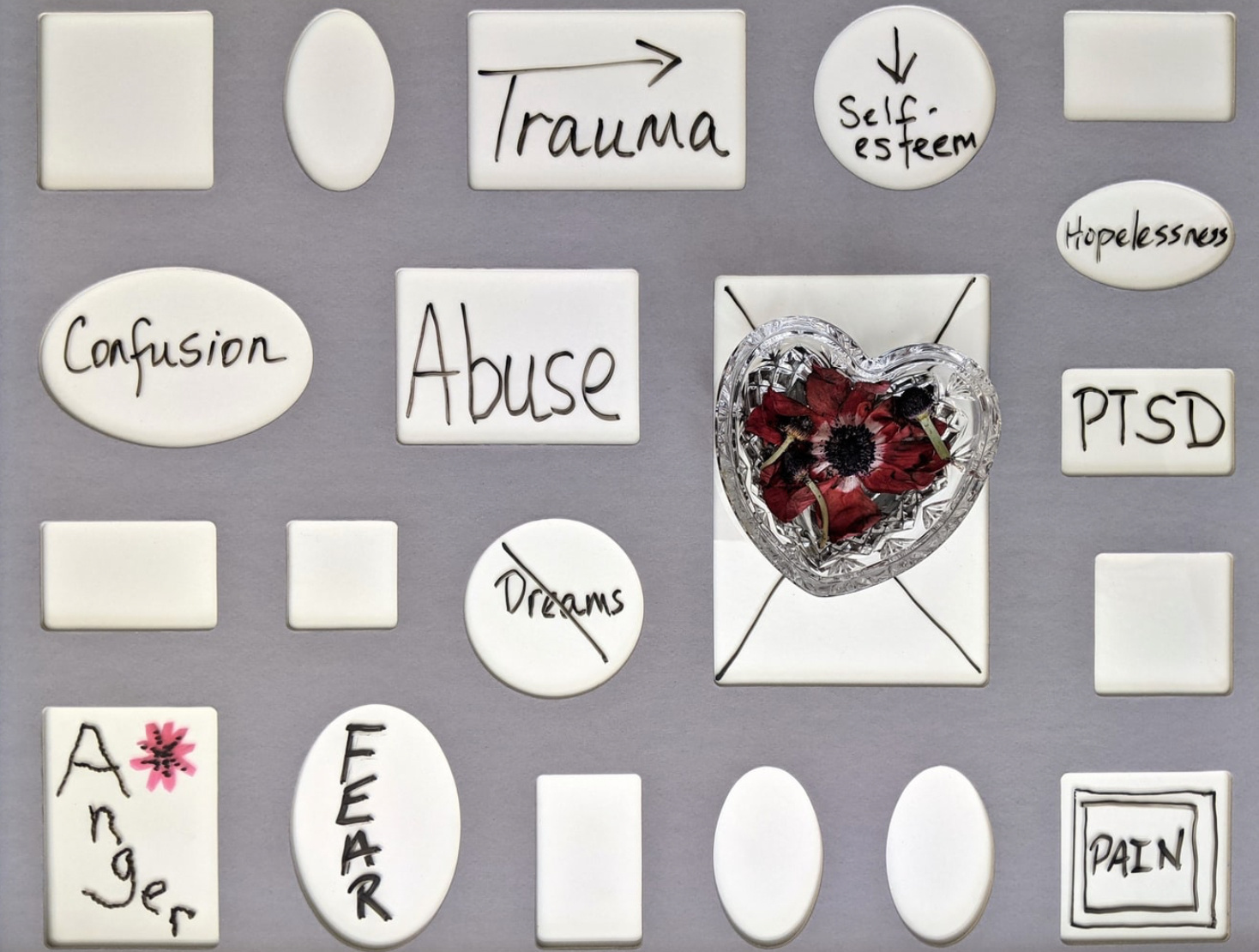
Traumatic events can be life-alerting. Lingering effects from trauma can make day-to-day events difficult and enjoyment of life feel far off. But, it doesn’t have to be that way. There are treatments that can help.
You may have never heard of Trauma Focused-Cognitive Behavioral Therapy (TF-CBT) or Eye-Movement Desensitization and Reprocessing therapy (EMDR) before, but both are highly successful treatments for those struggling with recovering from past trauma. And, both are offered by trained professionals at CW Psychological Services.
Read our newsletter to learn more.
Want to receive our monthly newsletters? Subscribe here.
What To Do When You Are Feeling Lonely

We all know of February as the month of love but with that comes increased feelings of loneliness for those of us who may be without the relationship status we desire. This year the month also comes as many of us are being forced back into isolation again with Covid cases on the rise.
We may be again fearful of venturing out into group settings, and the cold, dark and dreary weather of the winter likely isn’t helping our moods much. This is, after all, a common time of the year for the winter blues and seasonal depression. Counseling and therapy can be a good tool for supporting your mental health during these uncertain and challenging times. If you are struggling with feelings of loneliness there are some other things you can do, too.
Read what you can do in our newsletter.
Want to receive our monthly newsletters? Subscribe here.
We all have our own established thoughts on what it is like to be in therapy. We all have a perception of what meetings with a counselor might entail or how the process might go. These ideas might have come from personal experience, talking to others, or movies/TV, or other media. But, whatever you know there may still be some things you don’t know about all the benefits of therapy and how easily it can fit into your life.
That is why to start 2022 on a positive note we have come up with a list of five things you might not know about therapy and how it can help you. Read about them in our newsletter.
Want to receive our monthly newsletters? Subscribe here.
How to Set Boundaries this Holiday Season and Beyond
The holiday season is about togetherness but often togetherness, with certain people, can lead to discomfort and stress. That is why now is perhaps one of the most important times to talk about setting boundaries.
Setting boundaries with the people you are closest to can be difficult. You might want to remain silent to keep the peace. You might be worried about hurting others. But, if there are people, topics, or situations that routinely impact your level of happiness then you should do something to protect yourself. Boundaries do just that. They are there to protect you and your mental and physical health.
This newsletter talks about how to set boundaries.
Want to receive our monthly newsletters? Subscribe here.
The Benefits of Incorporating Gratitude into Your Day

November is the month of Thanksgiving. It is the time of the year when we focus on all the yummy food we are about to eat, family time, and gratitude. But, research shows, that gratitude is something we could benefit from every day—not just during one month of the year. It can have positive effects on our mental and physical health and our relationships.
This newsletter looks at some of the benefits of incorporating gratitude into your day.
Want to receive our monthly newsletters? Subscribe here.
5 Benefits of Receiving Care from an Associate Therapist or Psychologist-in-Training
At first thought, the idea of receiving care from an associate therapist or psychologist-in-training might seem a bit scary or even risky. While it is understandable to be nervous about the capabilities of a not-yet-fully-licensed therapist, several benefits are often overlooked.
An associate therapist has been participating in a rigorous education program through their school of choice. They have already completed a master’s degree in counseling, psychology, or a related field from an accredited program. A psychologist-in-training has a master’s degree and has completed a minimum of 15 graduate hours in their doctoral program. Both are working in an office setting to complete requirements for their formal licensure.
This newsletter looks at some of the benefits of receiving care from an associate therapist or psychologist-in-training.
Want to receive our monthly newsletters? Subscribe here.
Suicide Warning Signs and Risk Factors

It is not a fun topic to talk about but it is a very important one: suicide.September is National Suicide Prevention Month, and I can’t think of a better time to share some of the warning signs and risk factors of suicide — so you know. Half the battle in prevention is being aware of signs that someone is struggling. It can be easy in our busy lives to overlook warning signs thinking that someone is just stressed. You might not be able to fathom the thought that they could possibly hurt themselves or take their life. But, it happens every day.
Suicide is a leading cause of death, and sadly it is increasing. It is the second leading cause of death for people ages 10-34, the fourth leading cause among people ages 34-54, and the fifth leading cause among people ages 45-54. It impacts all ages, genders, and nationalities.
By knowing the warning signs and risk factors you have the ability to potentially help someone before they take their life.
This newsletter details some warning signs and risk factors.
Want to receive our monthly newsletters? Subscribe here.
Helping Your Child (and Yourself) Combat Back-to-School Anxiety

It is hard to believe that summer is coming to a close and another atypical school year is upon us due to the Covid-19 pandemic. You or your child may be feeling some back-to-school anxiety as you anticipate what things will be like this year. Masks, no masks, vaccines, no vaccines, quarantine rules, in-person learning, virtual learning, it is all a lot to take on.
Returning to school can cause anxious feelings even in a non-pandemic year with concerns over schoolwork, friendships, social interaction, teachers, getting to classes, etc. Combined with pandemic stressors you might be wondering how you can help your child and yourself combat back-to-school anxiety.
First of all, know that whatever you are feeling right now is ok. There is no “normal” way to feel as school begins. Your worries, your fears, even your relief is all valid.
Combating back-to-school anxiety may feel overwhelming but there are some ways to help ease emotions and make the transition a bit easier.
This newsletter details some tips to help you and your child transition back to school.
Want to receive our monthly newsletters? Subscribe here.















